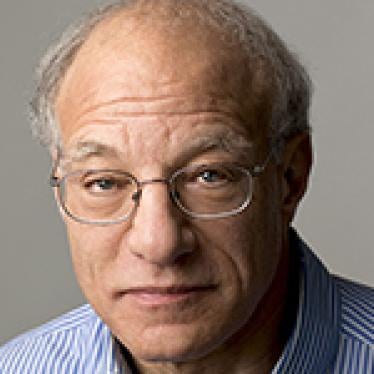US military commissions revoke for al-Qaida suspects the standard of justice extended to Nazi war criminals at Nuremberg
In the course of three days in late August, I travelled from Courtroom 600 in Nuremberg, Germany, where an international military tribunal tried 21 top Nazi leaders in 1945-46, to Courtroom 2 at Guantánamo Bay, Cuba. Courtroom 2 is the site of proceedings against Khalid Sheik Mohammed and the four others accused of masterminding the attacks on 11 September 2001. The contrast could not be more stark.
At Nuremberg, the US government insisted on a trial – in the face of strenuous opposition from the British and Russians, who wanted to summarily execute the most senior Nazi party members. Washington demonstrated a commitment – not without shortcomings in the course of the trials – to the uncharted path of international prosecution for monstrous crimes. In Guantánamo's Camp Justice, on the other hand, the US government is restricting the exercise of basic fair trial rights guaranteed by international and US domestic law.
While denigrated by some critics simply as "victor's justice", the Nuremberg trial marked a stunning turning-point in using law to punish the most egregious crimes. It also laid the foundation for the still-evolving system of international justice, in which those responsible for mass atrocities are increasingly being held to account under law. Unlike Nuremberg, because of its expected unfairness, the 9/11 trial is unlikely to serve history as a positive reference point.
In Courtroom 600 at Nuremberg, which I visited while attending a conference about an international justice institute at the site, I saw the wooden benches that Herman Goering and others occupied in the dock. These men, once seemingly omnipotent, believed they could exterminate millions without consequence. Their passage from power to prosecution signaled an unprecedented shift in international practice to bring to justice even the most powerful. I saw where Goering disputed the evidence against him, sparring with Robert Jackson, the US supreme court justice who served as America's chief prosecutor in Nuremberg. Such exchanges are fundamental to a fair trial in an adversarial proceeding. At Nuremberg, three of the accused were acquitted.
The Nuremberg tribunal staff made herculean efforts to make the trial visible worldwide, using newsreel footage, to underscore the importance of a public trial. Unknown, in its day, this initiative drove home the importance of projecting the trial sessions far beyond the courtroom.
At Guantánamo, however, the rules curtail essential rights of the defense to rebut incriminating evidence. The military commissions there allow hearsay evidence, which international tribunals permit as well. But at Guantánamo, the circumstances around which much of the evidence was obtained are considered a national security matter and even the defense lawyers, with top secret security clearance, are denied access. The prosecutor may introduce evidence the defendant has no way to challenge.
Moreover, at Guantánamo, everything the so-called "high-value detainees" say is presumed classified. So, if the 9/11 defendants speak up about torture in custody, or their lawyers try to, the audio feed from the courtroom is immediately cut off and the information will never appear in the public record. These rules effectively pre-empt the confrontation at the core of due process in an adversarial trial.
Further, an important legacy of Nuremberg was the permanent documentation of Nazi crimes; suppressing evidence in Guantánamo will prevent creation of a definitive historical record.
In addition, in Courtroom 2 the prosecutor has a power unknown in US federal court or any international tribunal: the prosecutor can unilaterally veto a defense attorney's decision to call a witness. A defense lawyer who wishes to summon a witness must first get the prosecutor's consent. If the prosecutor says no, the lawyer must argue its merits with the prosecutor in front of the judge. This unfair allocation of power between prosecution and defense directly violates an essential fair trial principle, known as "equality of arms", and locks in a prosecutorial advantage that undercuts a vigorous and effective defense.
A fair trial of the 9/11 accused at Guantánamo would renew Nuremberg's powerful example of justice being done and being seen to be done. Instead, the Obama administration, despite improvements in the 2009 Military Commissions Act, is departing from the farsighted example of Presidents Roosevelt and Truman.
Worldwide, there is a growing awareness of the efforts that have succeeded in bringing some of those accused of the world's worst crimes to justice: Radovan Karadzic, the Bosnian wartime leader; the former Liberian President Charles Taylor; and the former Peruvian President Alberto Fujimori. The Guantánamo trial will be compared with these proceedings. While policymakers in Washington have advocated fair trials for those implicated in ethnic cleansing and the use of rape as a weapon of war, gutting due process guarantees at Camp Justice will undercut US credibility in pressing for justice elsewhere.
A flawed trial at Guantánamo will debase the United States' better practices and devalue US government commitments to accountability for serious crimes from Syria to Sri Lanka. Nuremberg created a powerful positive precedent; Guantánamo has the potential to mar that achievement with the stain of hypocrisy.







